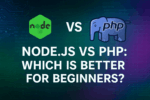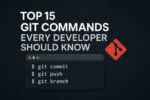Exploring Why Laravel Is Still Relevant in 2025 and Beyond

In a fast-paced world of web development, frameworks come and go, each promising to be the next big thing. But among these shifting trends, Laravel still remains relevant in 2025—and for good reasons. Even with new technologies and frameworks emerging, Laravel continues to evolve, adapt, and empower developers worldwide.
If you’re wondering whether Laravel is worth your time this year and beyond, this article will unpack why it’s not only surviving but thriving.
The Evolution of Laravel: More Than Just a PHP Framework
Laravel was first introduced in 2011 with a vision: to make PHP development more enjoyable, elegant, and efficient. Over the years, it transformed from a promising framework into a full-fledged ecosystem, complete with tools for deployment, serverless hosting, real-time applications, and more.
Fast forward to 2025, and Laravel’s growth isn’t slowing down. Its ecosystem now includes:
- Laravel Forge for server provisioning and deployment
- Laravel Vapor for serverless hosting on AWS
- Laravel Nova for building beautiful admin dashboards
- Laravel Envoyer for zero-downtime deployment
These tools reinforce Laravel’s position as a modern, scalable solution that goes beyond traditional PHP frameworks.
Key Features That Keep Laravel Relevant Today
So, what is it about Laravel that makes it such a valuable choice in 2025? Here are some standout features and improvements that prove its ongoing relevance:
1. Cutting-Edge Performance with PHP 8.3
Laravel embraces the latest PHP releases, including PHP 8.3, which brings speed enhancements, better typing, and new language features. Laravel applications running on PHP 8.3 see noticeable improvements in speed and memory usage, making it ideal for modern web apps that demand quick response times.
2. Real-Time Functionality with Laravel Reverb
Modern web apps crave real-time interactions—live chats, instant notifications, and dynamic dashboards. Laravel’s recent introduction of Reverb simplifies building these features. Reverb integrates seamlessly with Laravel’s broadcasting system, allowing developers to implement real-time updates without complex configurations or external dependencies.
3. Developer-Friendly Tools for Faster Development
Laravel remains beloved for its clean syntax and developer-first design. Updates like Laravel Prompts enhance the command-line experience, making tasks like scaffolding and configuration more interactive and enjoyable.
Additionally, starter kits such as Laravel Breeze and Jetstream provide quick setups for authentication, user management, and frontend integration with popular tools like Tailwind CSS, React, and Vue.js.
4. Security and Stability Built In
Security is critical in today’s online world. Laravel offers robust built-in protections against common vulnerabilities such as SQL injection, cross-site scripting (XSS), and cross-site request forgery (CSRF). With its regular updates and community vigilance, Laravel stays on top of security best practices, giving developers and businesses peace of mind.
5. Scalability With Laravel Octane and Vapor
As applications grow, scalability becomes a concern. Laravel’s Octane leverages high-performance servers like Swoole and RoadRunner to boost request handling, while Laravel Vapor allows serverless deployment on AWS, offering automatic scaling without infrastructure headaches.
A Framework That Plays Well With Modern Frontends
While Laravel excels as a backend framework, it doesn’t force developers into a single frontend approach. Whether you prefer Blade templates, Vue.js components, React, or building a headless API for a JavaScript frontend, Laravel provides the flexibility to integrate seamlessly.
This adaptability ensures that Laravel fits well into modern full-stack development workflows, making it an excellent choice for developers working with diverse technologies.
The Community: Laravel’s Unmatched Strength
A framework’s longevity depends heavily on its community, and Laravel’s community is vibrant, welcoming, and constantly innovating. From Laracasts tutorials to Laracon conferences and active GitHub contributors, the ecosystem is full of resources and support.
In 2025, this community remains a vital factor keeping Laravel relevant. It helps developers solve problems quickly, share best practices, and contribute packages that extend Laravel’s functionality even further.
Who Is Using Laravel in 2025?
Laravel’s versatility means it’s trusted across a wide spectrum of industries and projects, including:
- Startups building rapid MVPs
- E-commerce platforms needing secure, scalable solutions
- Enterprise companies developing internal tools and APIs
- Educational platforms focusing on ease of use and rapid deployment
Its proven track record across these diverse use cases is a testament to Laravel’s continued relevance.
Final Thoughts: Is Laravel Still Relevant in 2025?
The answer is a resounding yes.
Laravel has successfully navigated the waves of change in web development by continually evolving and focusing on what matters most: developer experience, performance, security, and flexibility.
Whether you’re just starting out or looking to future-proof your tech stack, Laravel offers a mature, reliable, and powerful framework that remains highly relevant in 2025—and beyond.






